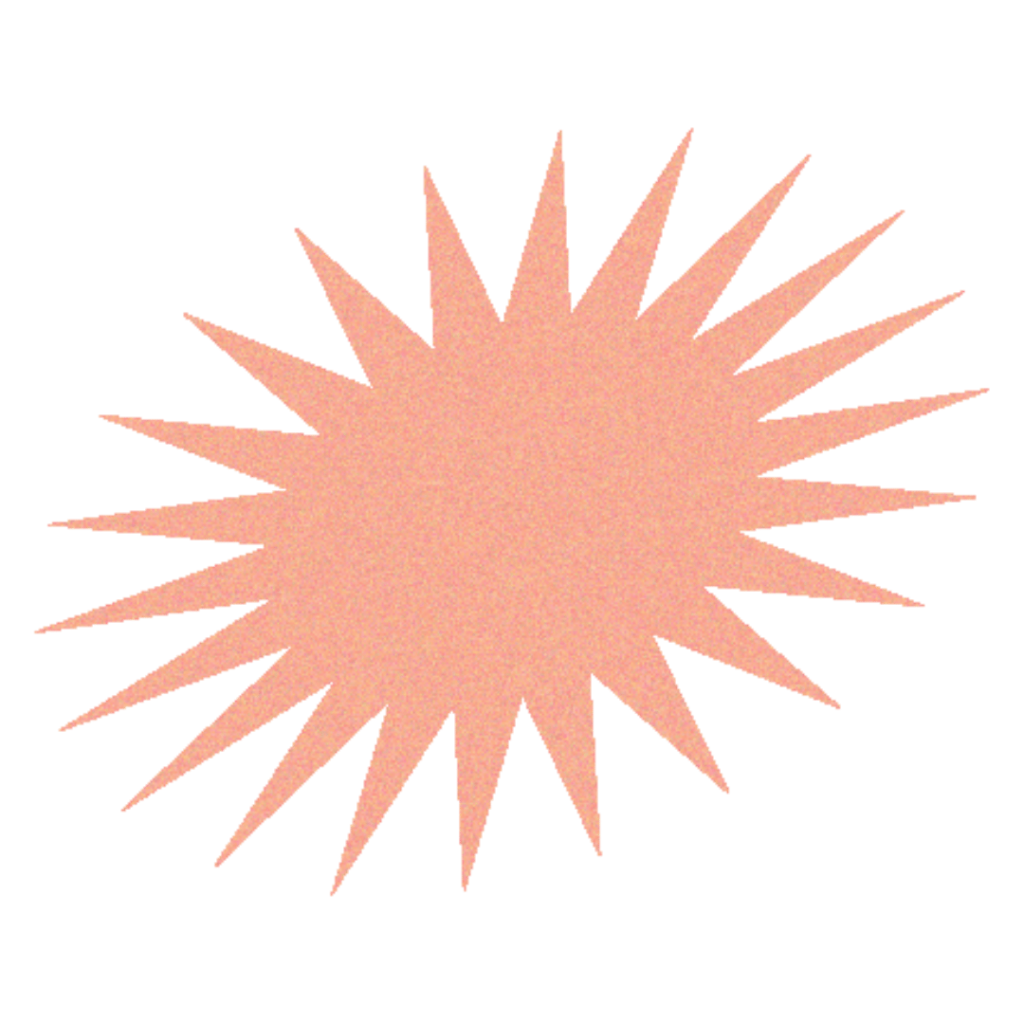
Ready for part two?
History can teach us what we should expect from our opposition..
History can teach us what we should expect from our opposition, especially with all eyes on Chicago during August’s Democratic National Convention (DNC).
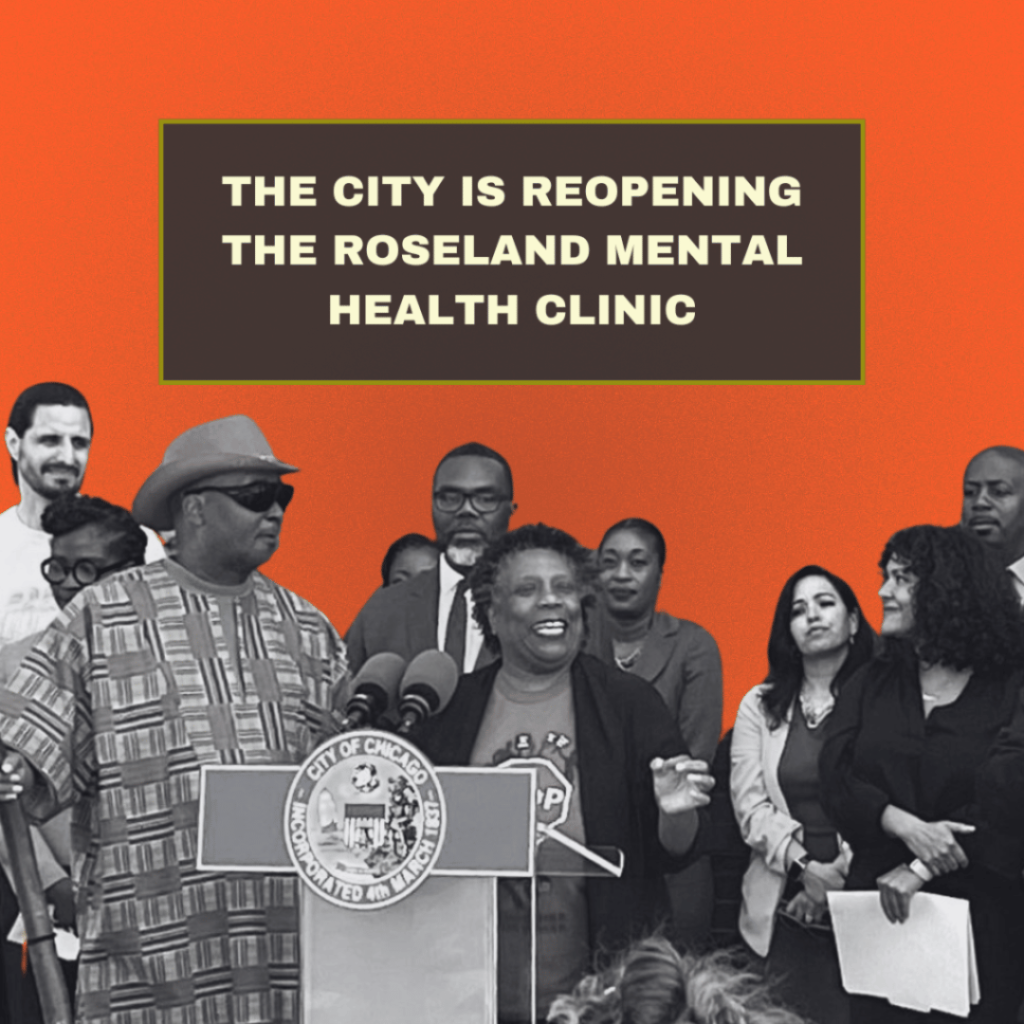
Chicagoans are celebrating a big victory this year in the fight to invest in our communities. After former mayor Rahm Emanuel closed down half of the city’s mental health clinics over 10 years ago, the City is reopening the Roseland Mental Health Clinic and expanding mental health services to clinics in Pilsen and Garfield Park.
Understanding the history of this struggle helps us to see where we need to go next–and what danger might be lurking ahead. The same forces who led Emanuel to fight tooth-and-nail to shutter public services are as strong as ever, and have a history of using any means necessary to line their pockets.
2024 vs 1968: Learning from history ahead of August’s DNC
Chicago will host the Democratic National Convention (DNC) from August 19-22, an event that could draw upwards of 75,000 attendees, delegates, and volunteers. Outside of the convention will likely be thousands of protestors who are marching on Chicago to demand President Biden and potential presidential nominee Kamala Harris end US involvement in Israel’s ongoing massacre of Palestinians. A recent report from The Triibe highlighted that 40 Chicagoans are already facing misdemeanor charges for civil disobedience against our country’s involvement in the death of over 100,000 Palestinians since October 7. These activists warn that the City’s response to the DNC may be even more severe.
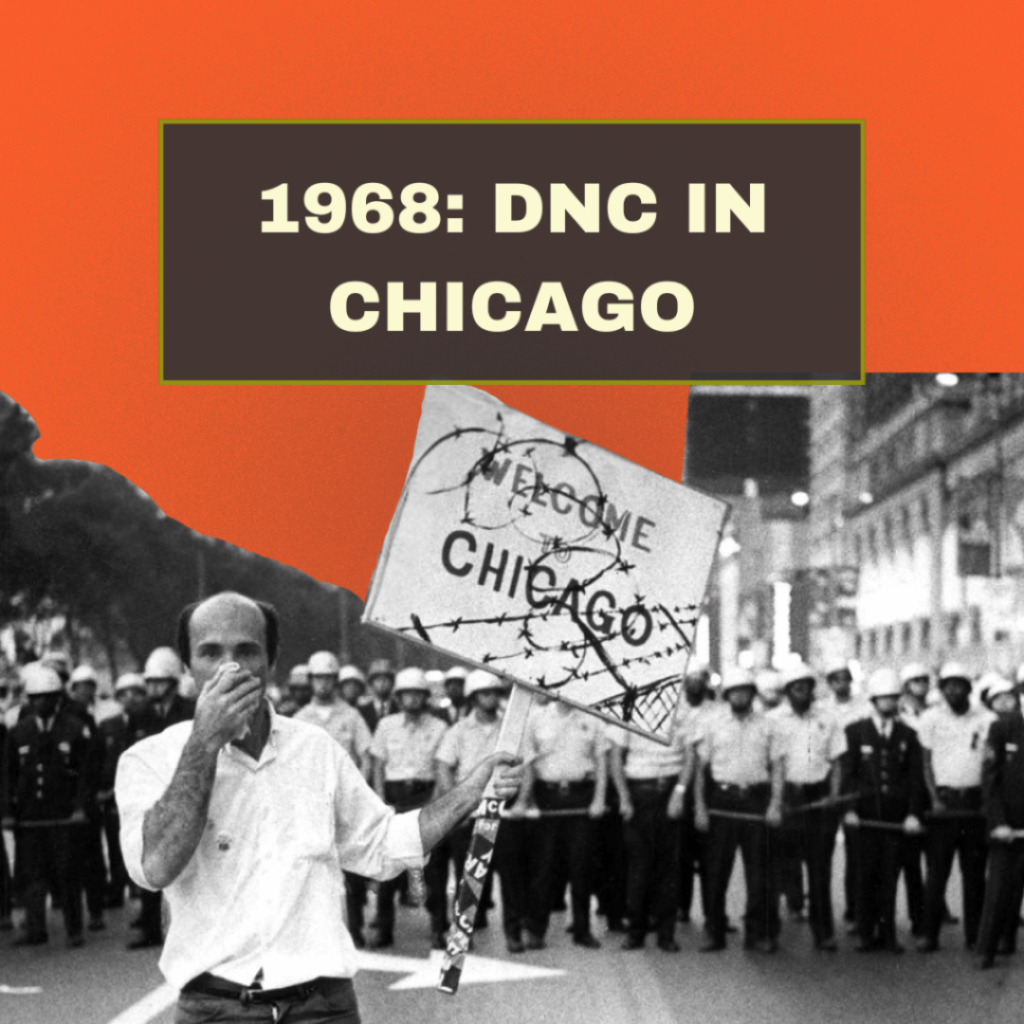
For many, the parallels between the last DNC in Chicago in 1968 and the events today loom large. In 1968, over 10,000 protestors demonstrated against another US-backed invasion abroad–the Vietnam War. Military and police brutality against the demonstrations resulted in chaos, hundreds of injuries, and one death.
But Chicago doesn’t need to look as far back as 1968 to see how Chicago police may respond to mass amounts of protestors converging with activists and community members from our movement during a major political event in our city.
2011: Mayor Emanuel closes the clinics
When Rahm closed 6 of the city’s 12 public mental health clinics in mainly low-income, high-crime neighborhoods, all 50 alderpeople in City Council voted in support. Mainstream narrative media who covered this tragic loss of public resources ran outlandish stories that argued cutting the budget toward mental health clinics would actually expand care. But the people who stood to lose essential mental health care didn’t let this go without a fight.
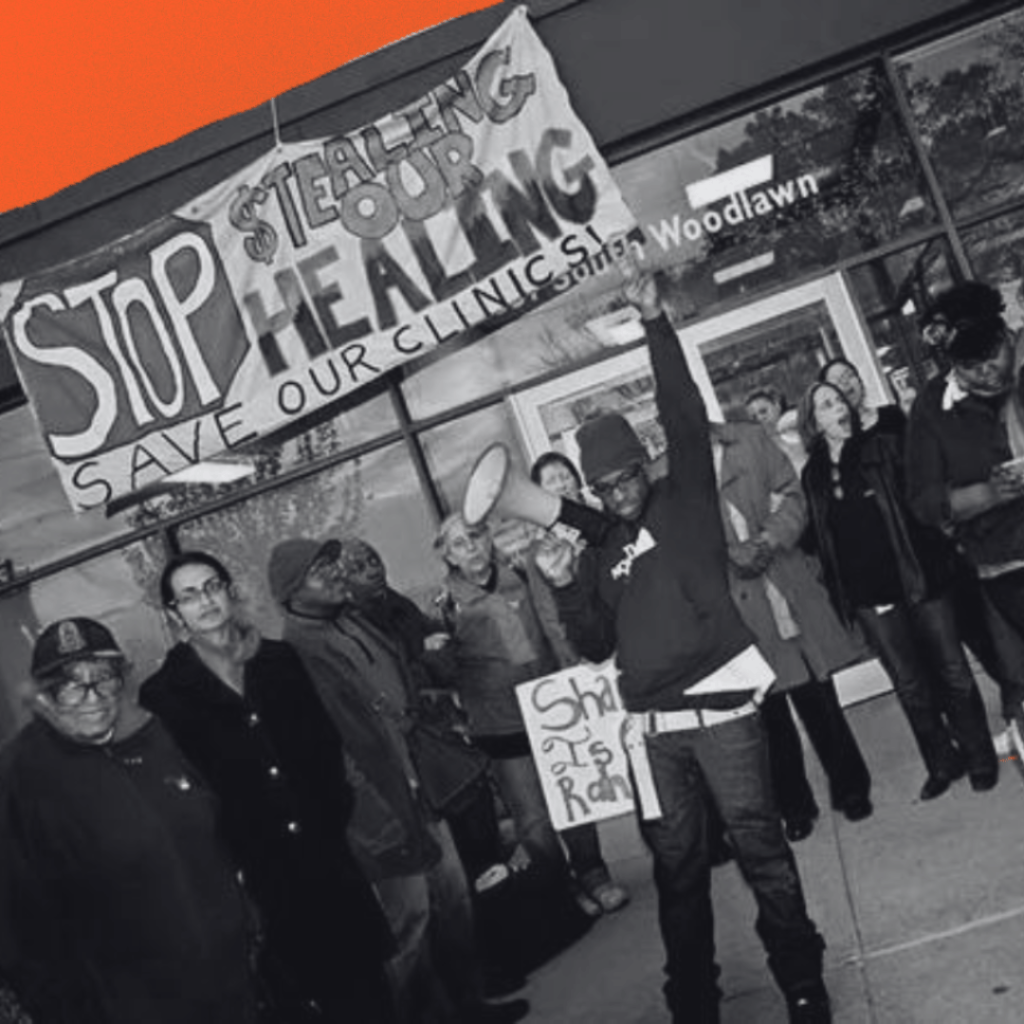
Matt Ginsberg-Jaeckle, a co-founder of Southside Together Organizing for Power (STOP) who helped lead the fight against Rahm’s closure of the mental health clinics in 2011, appeared in a recent interview on The Ben Joravsky Show. He told of the lengths that the greedy and powerful banks, financial firms, money lenders, and corporate leaders in Chicago went to in their mission to close public services to increase their profits.
This wasn’t the first time a Chicago mayor had attempted to close down the clinics. Former Mayor Richard M. Daley began cuts to these clinics in the 90s; in response, advocates for these services created the Coalition to Save Our Mental Health Centers. When Daley’s son, Mayor Richard J. Daley, attempted to continue cuts to mental health services in 2009, the coalition saw an opportunity to leverage their power while the International Olympic Committee was in town to discuss Chicago as a potential host for the global event. Knowing that this was a pet project of the mayor, they staged a sit-in at his office during the Olympic Committee’s visit; as a result, they won a meeting where they were able to negotiate with the mayor, who backed down.
Mayor Emanuel proved to be a different kind of mayor. As the Democratic party shifted away from its base of labor union and working class support toward the support of banks, hedge funds, venture capital, and corporate profiteers, our movement’s ability to leverage power shifted as well.
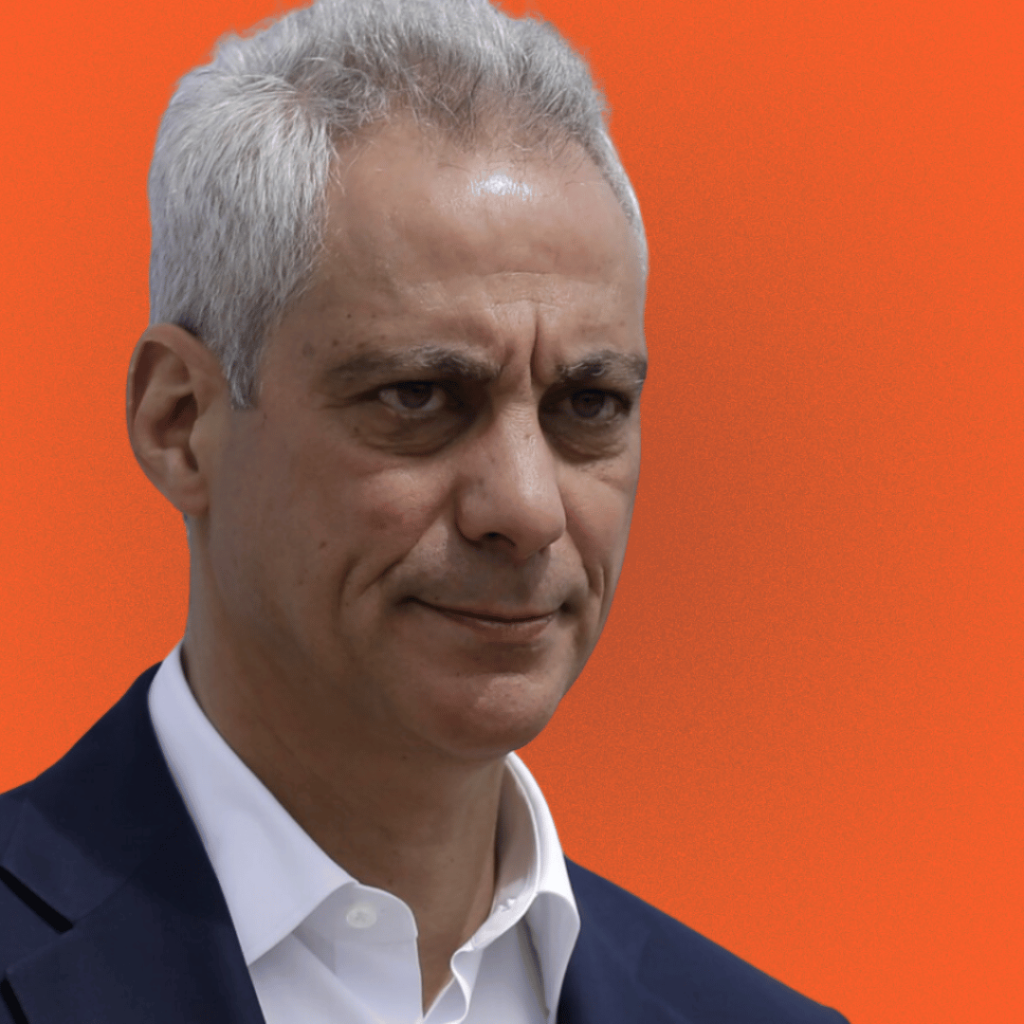
When Rahm announced his 2011 budget that would close half of the clinics, a coalition of mental health advocates and people who were served by these clinics fought to get a meeting with Rahm on the issue. He refused.
The coalition escalated their tactics. They sent letters, collected thousands of petition signatures, worked through aldermanic channels, and held vigils and marches. With no response, the coalition held a 100 person sit-in on the day of the budget vote with 20 protestors occupying the mayor’s office. The City responded by cutting off access to bathrooms, threatening arrest, and sending alderpeople in to scold them. Rahm still refused a meeting.
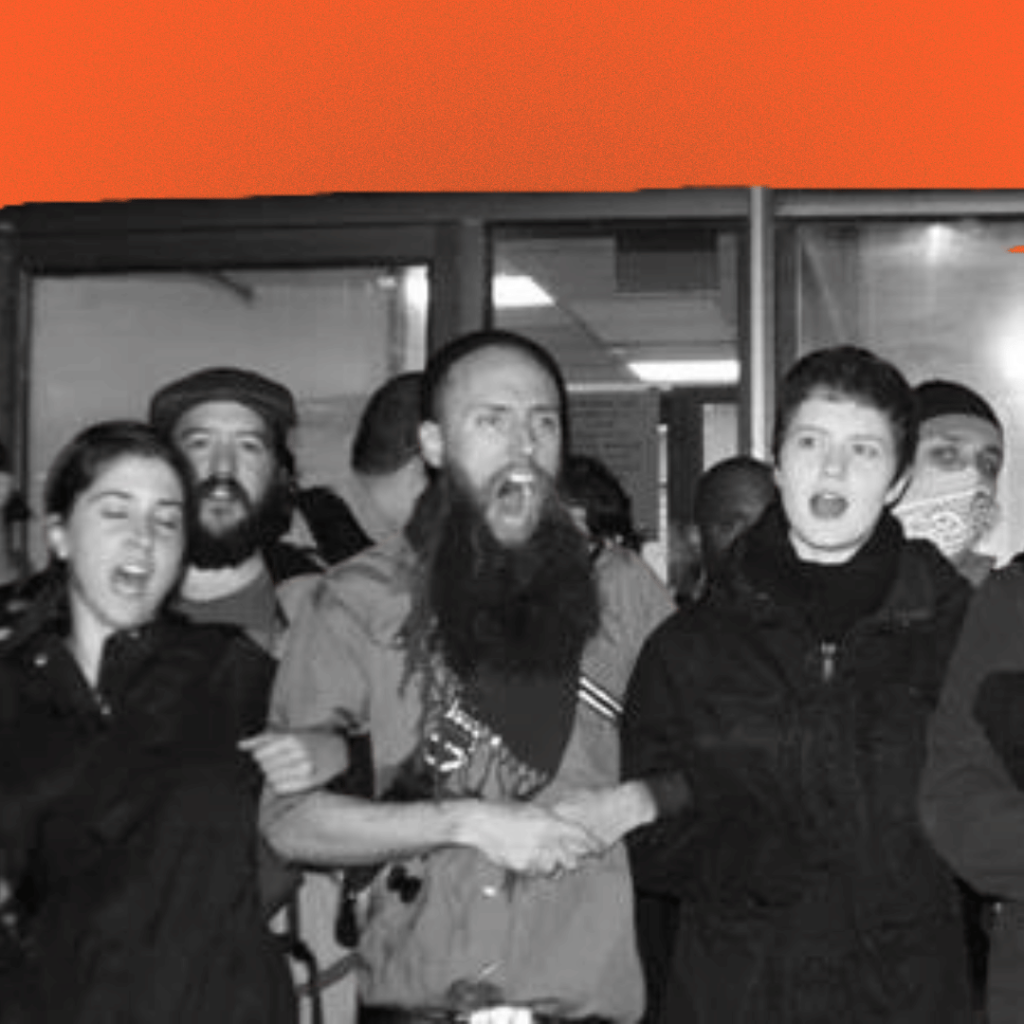
That April, when clinics were scheduled to close, members from the coalition occupied one of the clinics, bringing enough supplies to allow them to stay for a month. The City responded the same day–with militarized police who chainsawed through the barricade and made arrests.
With so much at stake, the coalition still didn’t back down. They created an encampment across the street from the clinic immediately after being released from jail, and expanded to similar encampments at the other clinics that faced closure, which lasted for months.
The courage and persistence of this coalition planted the seeds that allowed today’s victories in reopening one clinic and expanding mental health services. But the underhanded and violent tactics used by our opposition hadn’t reached their most severe point yet.
2012: Chicago Police Department infiltrate the campaign for mental health services
Having learned from using the Olympic Committee’s visit to put pressure on Mayor Daley, the coalition saw another moment of high visibility to use: the 2012 NATO Summit.
Mayor Emanuel thought of the NATO summit, an event where government heads from around the world met to discuss ongoing military operations, as an opportunity to showcase Chicago on a global scale. Like so many of his actions in office, this was also an opportunity to make a sales pitch to investors outside of Chicago to come in and buy up public goods, leading to unaffordable rent, school closures, and massive population loss in Chicago’s Black neighborhoods.

NATO summits draw protestors from around the country who are opposed to the USA’s expensive and cruel military policies abroad. In 2012, many Americans were also influenced by the Occupy movement that decried the greed of the 1%. The mental health coalition in Chicago tied these struggles together by declaring “healthcare not warfare,” showing how our government invests billions in a profitable military industry that benefits the 1% while starving people of essential resources. Some protestors who were in town for NATO found their way to the encampments outside of the mental health clinics, excited to be a part of a movement that could help improve peoples’ lives.
So the coalition wasn’t immediately surprised when two protestors who called themselves “Mo” and “Gloves” arrived at the shuttered Woodlawn clinic to join the encampment. They shared an emotional story about a relative with mental health issues who they lost to suicide. One night, when the Chicago Police Department arrived to make mass arrests of the protestors in tents, Mo and Gloves made sure they inserted themselves into the group of arrestees.
Ginsberg-Jaeckle recalled being handcuffed to Mo in jail that night and getting the sense that something wasn’t right. Mo repeatedly insisted that they needed to “take it to the next level,” which Ginsberg-Jaeckle interpreted as an attempt to get him to say something incriminating.
It turned out his gut instincts were correct. In the coming weeks, they would discover that Mo and Gloves were actually undercover police officers Mehmet Uygun and Nadia Chikko who were paid to infiltrate the clinic encampments, as well as other places where leftists were convening in Chicago, ahead of the NATO Summit.
Ben Joravsky, writing about Mo and Gloves in 2014, reported: “In their undercover capacity, officers Chikko and Uygun gathered intelligence and information in various locations, including coffee shops, meetings, protests, rallies and concerts in an effort to root out any plans for criminal activities for criminal activity before, during or after the NATO summit.”

Jorvasky questioned how much money was spent on this undercover operation, how many officers were involved, and whether other spaces targeted by Rahm’s administration, such as the Chicago Teachers Union, were infiltrated, but received no response.
Chikko and Uygun may not have slowed down the campaign to keep our clinics open, but they were successful in their scheme to entrap protestors. Entrapment is a technique used by law enforcement in which they come up with an idea for a crime and then recruit people to participate who would not have come up with that idea themselves.

Three protestors who had appeared at the encampments were charged with conspiring to commit terrorism on President Obama’s campaign office and Mayor Emanuel’s house based largely on the testimony of Mo and Gloves. Glen Ford reported in Black Agenda Report that these two undercover police were also behind the arrests of two other protestors, writing: “One of the guys supposedly bragged that he could blow up a bridge in downtown Chicago. The other man allegedly wanted to build a pipe bomb. They are guilty, you see, of felonious and wishful thinking.”
Read Part Two
Featuring a conversation with Matt Ginsberg-Jaeckle, Southside Together Organizing for Power co-founder and 50th Ward United Working Families member.
